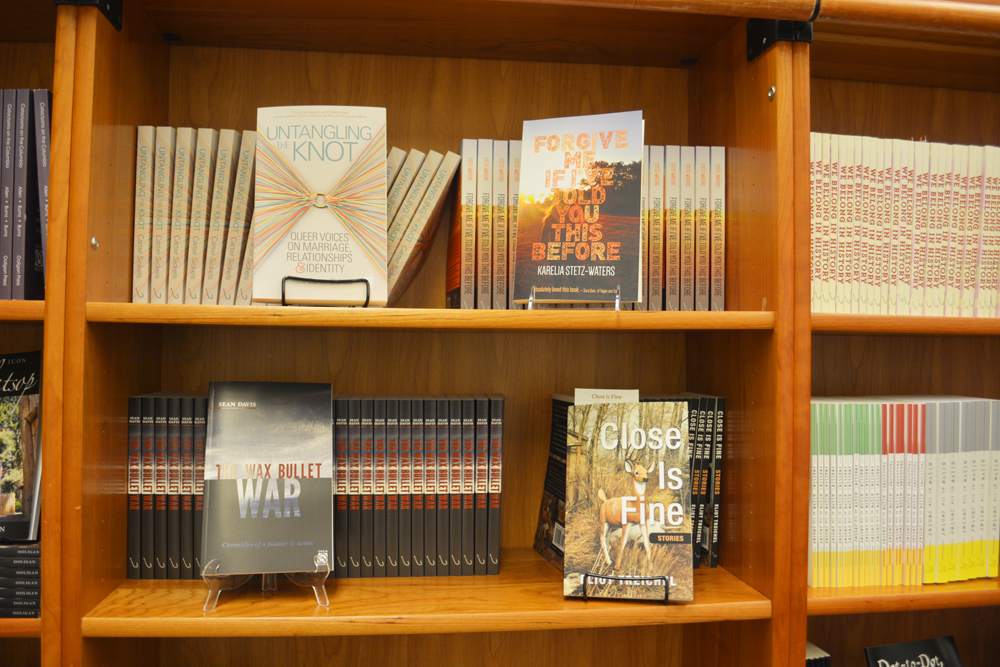Ryan Hume
“waltz, n. 1. a ballroom dance in three-four time 2. music for this dance; v.i. to dance a waltz.” – Webster’s Dictionary, 1984.
As I write this, we have no governor. By the time this comes out Friday, I am sure this will all be resolved and either Ted “I’m-a-pretty-good-bowler” Kulongoski or Kevin “Planned-Parenthood-is-a-retail-establishment-of-death” Mannix will be sitting in the big chair down in Salem, but right now I’m content with the absence in that chair.
It is the day after the election and this is the sort of calm I want from politics. It is like the air has cleared along with all of the negative advertisements from our radios and television sets. I’m in a gubernatorial limbo, trying to not think about our national GOP-controlled future, and it is bliss.
I’m centered upon this perfect void that has eclipsed our state election, and it is like floating through some of the freshest air I have felt in months – the scent of leaves after a rainstorm, that first whiff of coffee in the morning – these are the lovely things comparable to the emptiness of state politics at this moment. I focus on the absence because I believe the void will be our best governor right now.
The waltz is considered a strange dance because of its unusual three-four time signature. Most dance music contains a time signature that consists of multiples of four beats within a single measure. The waltz has three beats per measure creating a dat-da-DA, dat-da-DA rhythm for the dancers to trace. The waltz is considered intimate, because it requires the dancers to be in very close proximity to one another, to rest upon each single beat, swaying. This led to its characterization as an obscene lament for the lower class upon its conception in the mid-18th century, whereas the stately dances of the aristocracy kept partners at a modest arms-length. The waltz was seen as a risqu퀌� embrace perpetuated by the peasantry. I couldn’t help but think of the waltz last night as I watched the numbers from the gubernatorial election come in, the votes swaying back and forth in close proximity to one another across the ballroom of my television screen. At 11 p.m., the future of Oregon’s high office was caught in a risqu퀌� embrace, hitting three beats per measure – 25 percent at 65 percent-30 percent, 76 percent at 48 percent-48 percent, 78 percent at 47 percent-48 percent, 81 percent at 48 percent-47 percent, and so on and so forth – Kulongoski and Mannix twirling along amidst a moonlit night, dancing a strange dance that I can only link to the politics of mediocrity.
Not unlike the national elections of this year or those of 2000, in these close-call elections, in which the balance of power may actually rest on a few single votes, political analysts are quick to point out that this is the sign that America is a divided nation, that the politics of our citizenry lay on either side of a partisan-wired fence, split down the middle by platform issues. But I disagree.
Of course, I will be the first to announce I am not a political analyst and this is merely only the opinion of one small man in one small column in one small newspaper, but I don’t see America divided by deeply felt politics and centered beliefs upon a myriad of pressing issues, I see it divided randomly by the apathetic and detached voices of the people who aspire to political office.
I find no qualities of leadership in either of these two candidates, and I am forced to vote by which way I tend to lean on issues that are not the most pressing of issues in contemporary society.
This was the same problem that plagued the presidential election in 2000. When choosing between two evils, choose the lesser of those? Why? Maybe I am still too idealistic, but I don’t think any evil deserves to be chosen, especially for just being less of what it actually is. I want follow-through. I want integrity. If you’re going to be evil, be evil, damn it! We live in a world where we choose our leaders for what they cannot be accused of.
This election year, I learned more about candidates through the barrage of attack commercials that their opponents ran against them than from the actual mouths of the candidates themselves. I can’t be accused of that, vote for me! You should sometime to walk into an office and ask for a job application. When the application invites you to fill in any special skills that may increase your likelihood for employment, fill in: “I like to work with others and also I have never been convicted of murder and therefore am the perfect person for this job.” See how far that gets you in the door.
We have not seen a true leader in this country for a while now. No matter how you feel about Ronald Reagan or Bill Clinton, Star Wars and blowjobs aside, you have to admit they were leaders. They knew how to rally the people into a frenzy and push politics beyond mediocre media squabbling. They actually accomplished something, whether you agreed with what they accomplished or not.
We have entered a new age of politics, of drab, mainstream-moderate mudslingers whose banal careers will trickle away with history the way a second ticks by on a clock.
I will be the first to welcome them by stating, let this waltz of absence dance all night.



